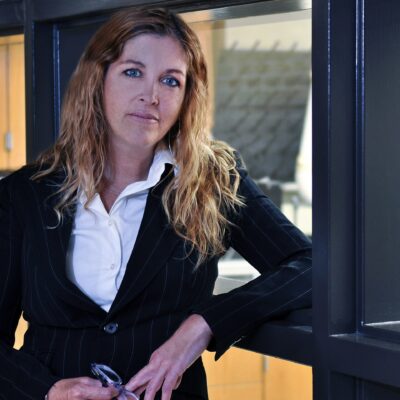Contact
Biography
Karen Wooley’s research activities combine organic syntheses, polymerization strategies and polymer modification reactions in creative ways to afford unique macromolecular structures, which have been designed as functional nanostructures, polymer systems having unique macromolecular architectures, and/or degradable polymers. Recent inventions from Wooley’s laboratory include a sustainable plastic that degrades in water; a wound dressing that the body absorbs; a non-toxic polymer coating that can prevent marine animals from sticking to a ship’s hull; and nanoparticles that can absorb 10 times their weight in spilled crude oil. The emphasis is upon the incorporation of functions and functionalities into selective regions of polymer frameworks. In some cases, the function is added at the small molecule, monomer, stage, prior to polymerization, whereas, in other cases, chemical modifications are performed upon polymers or at the nanostructure level; each requires a strategic balance of chemical reactivity and the ultimate composition and structure. Current projects aim to: 1) develop polymer coatings and nanostructures that exhibit minimized non-specific biological interactions and maximized specific biological interactions to achieve non-toxic anti-biofouling performance, tissue-selective targeting, tissue engineering, etc.; 2) expand the types of discrete nanoscale objects that can be produced from the supramolecular assembly of programmed block copolymers and/or from the intramolecular assembly of sophisticated macromolecular architectures; 3) advance polymerization chemistries to achieve selective polymerization of multi-functional monomers; 4) incorporate function into degradable polymers and degradable units regioselectively into nanostructures; 5) design materials as hosts for the controlled packaging, transport and release of diagnostic and therapeutic agents; 6) engineer complex materials as highly sensitive and multi-modal Imaging agents; 7) develop synthetic methodologies to control the size, shape, and composition of nanostructures and investigate their hierarchical assemblies. Wooley is the W. T. Doherty-Welch Chair in Chemistry and a University Distinguished Professor in the Department of Chemistry, College of Science, with joint appointments in the Department of Chemical Engineering in the College of Engineering and the Department of Materials Science & Engineering, which is administered jointly by the colleges of science and engineering. She also serves as director of the Laboratory for Synthetic-Biologic Interactions. Her research interests include the synthesis and characterization of degradable polymers derived from natural products, unique macromolecular architectures and complex polymer assemblies, and the design and development of well-defined nanostructured materials. After receiving her doctorate from Cornell in 1993, Wooley joined the faculty of Washington University in St. Louis, Mo., where she became a full professor with tenure in 1999 and a James S. McDonnell Distinguished University Professor in Arts & Sciences in 2006. She relocated to Texas A&M in 2009. She is a fellow of the American Academy of Arts and Sciences and the Royal Society of Chemistry, as well as an honorary fellow of the Chinese Chemical Society. Honors include the American Chemical Society (ACS) Award in Polymer Chemistry, the Royal Society of Chemistry Centenary Prize in 2014 and the Oesper Award from the ACS in 2015. She also was elected as an NAI Fellow, the highest professional distinction accorded solely to academic inventors.
